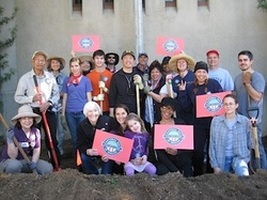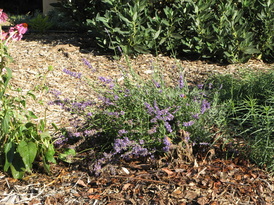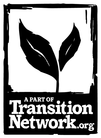
2013 proved a momentus year for Throop Learning Garden. Our planning and hard work culminated in a beautiful, productive oasis. The garden continues to be a place of habitat renewal, community building, and possibility in an evolving urban environment.
Notable events and achievements for 2013 include:
We hosted many well attended workshops. Some were short talks on Sundays covering an array of garden topics. More formal workshops included:
We also began Michael’s Wednesday garden workdays, weekly meditation on Sunday mornings, and installed several water features.
Notable events and achievements for 2013 include:
- January — National Day of Service brought 42 volunteers together for a lawn conversion.
- April — The Pasadena Earth & Arts Festival bestowed Throop Church and NELA Transition an award for Urban Nature for the Throop Learning Garden.
We hosted many well attended workshops. Some were short talks on Sundays covering an array of garden topics. More formal workshops included:
- Lenore & Ginko’s Soap Making Workshop
- Laura Henne’s Worm Compost Workshop
- Jim Bledsoe’s Hypertufa Workshop
- Dr. Jim Adam’s Native Healing Plants Workshop
- Steve Hofvendahl’s Fruit Tree Pruning Workshop
- Just Doing Fun Stuff Holiday Party
We also began Michael’s Wednesday garden workdays, weekly meditation on Sunday mornings, and installed several water features.
Notable intangible trends may be our most important achievements. Monarch butterflies abounded on the garden’s milkweed plants. Several bird pairs nested in the fruit tree grove. Bees feasted on fruit tree and herb blossoms. On the human front, many people used the garden, some for sheer enjoyment, others as a source for nutritious produce. Many people worked in the garden, benefitting from exercise, comraderie, and a chance to commune with the earth. The garden continues to be a place of life and renewal.
2014 holds promise and many challenges. The deepening drought forces us to seek greater water conservation measures. We have much to do with water catchment for the limited rain we do receive. We need to prune, trellis, and support plants in a more organized fashion. We need to redouble our efforts for coherent and attractive interpretive signage. We need to plant more perennials and fruit trees. We need to devise better methodology for tracking harvests and volunteer hours. We need to engage people who take produce to also take part in the garden work. We need to continue to plan for workshops and fun activities, including monthly or semi-monthly meetings.
This also entails expanding outreach through social media and networking. The most important function of the garden is human development. If we can coax people to open a visceral,
grateful, heartfelt connection with their environment, we can begin to do the healing that must happen.
— January Nordman
2014 holds promise and many challenges. The deepening drought forces us to seek greater water conservation measures. We have much to do with water catchment for the limited rain we do receive. We need to prune, trellis, and support plants in a more organized fashion. We need to redouble our efforts for coherent and attractive interpretive signage. We need to plant more perennials and fruit trees. We need to devise better methodology for tracking harvests and volunteer hours. We need to engage people who take produce to also take part in the garden work. We need to continue to plan for workshops and fun activities, including monthly or semi-monthly meetings.
This also entails expanding outreach through social media and networking. The most important function of the garden is human development. If we can coax people to open a visceral,
grateful, heartfelt connection with their environment, we can begin to do the healing that must happen.
— January Nordman





